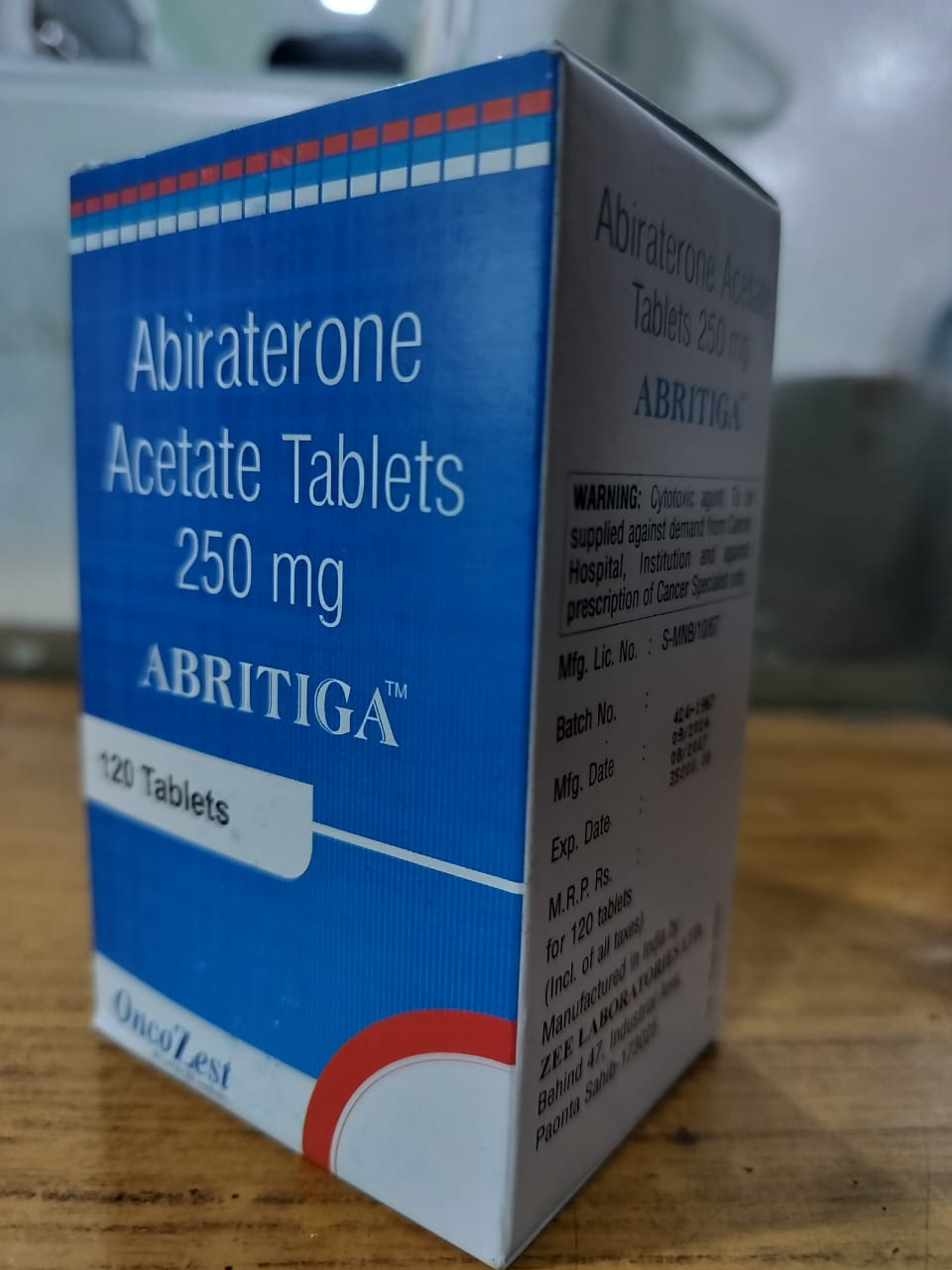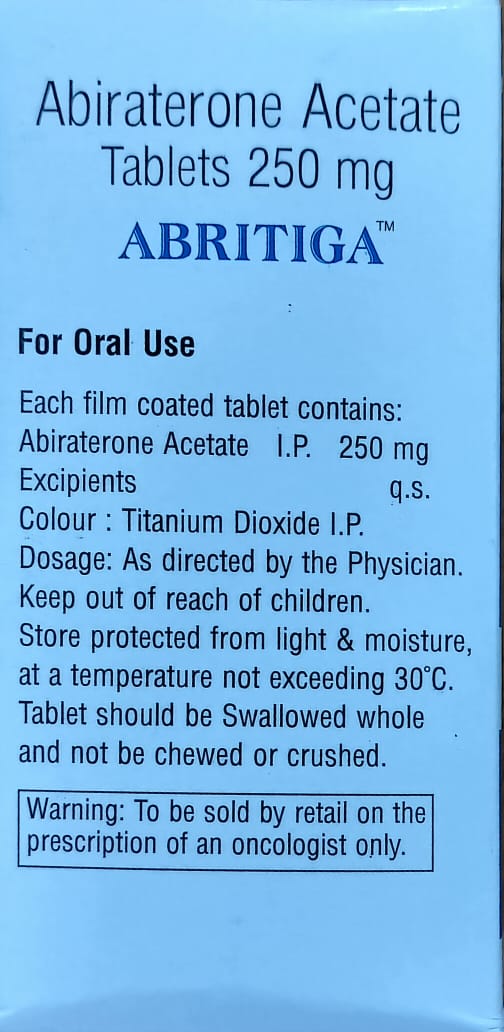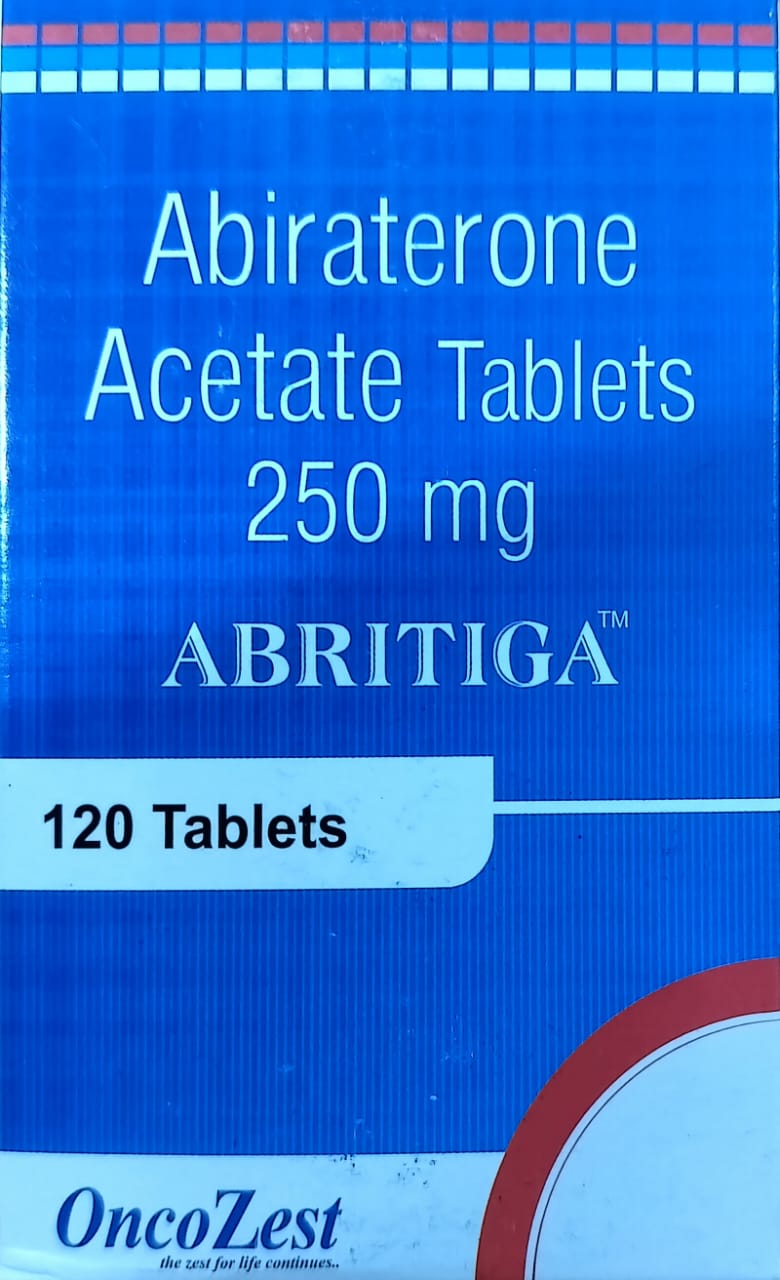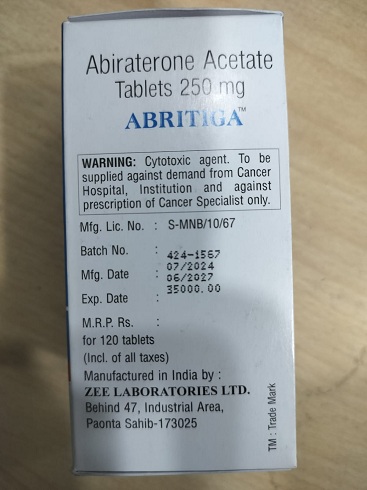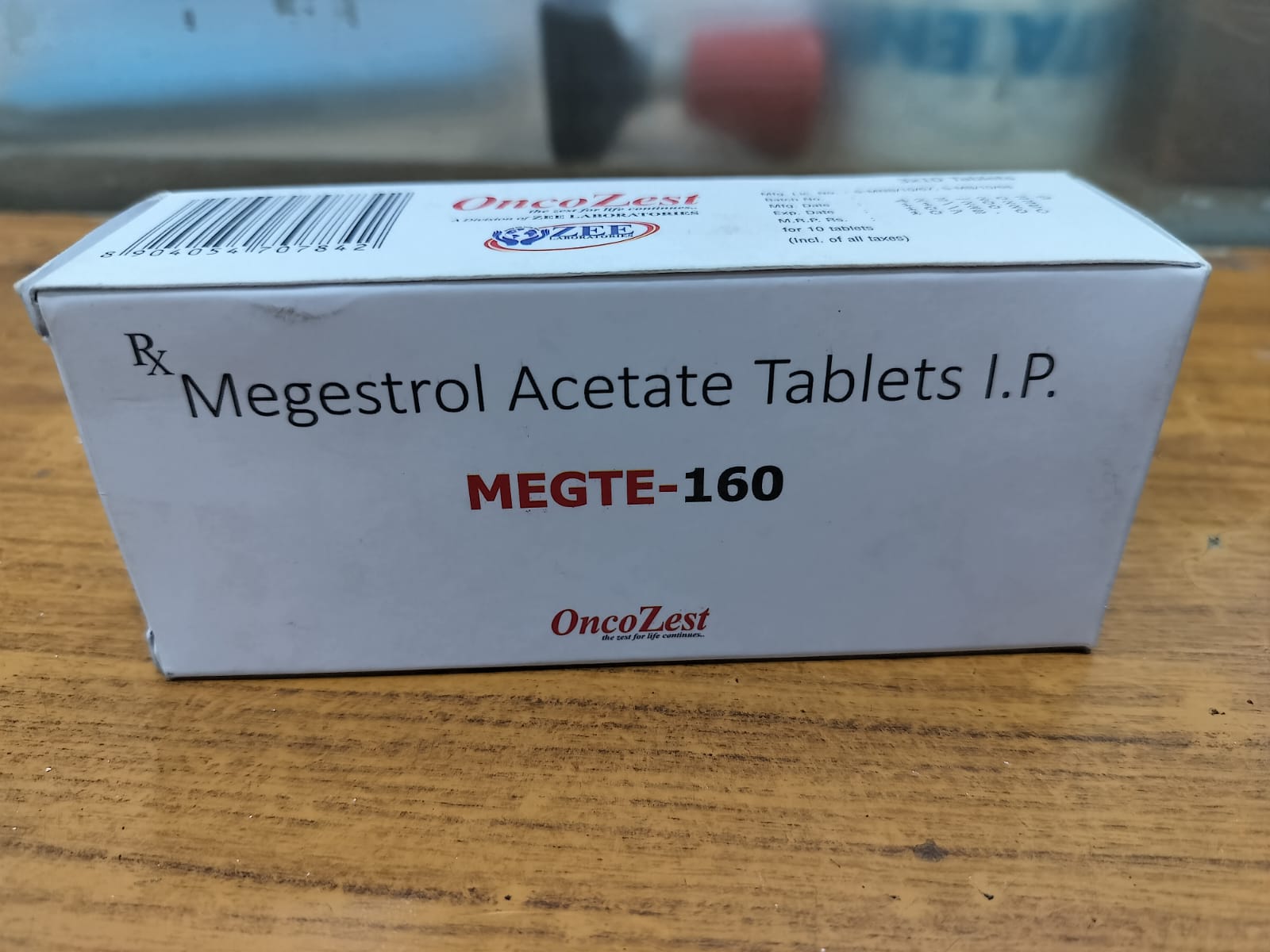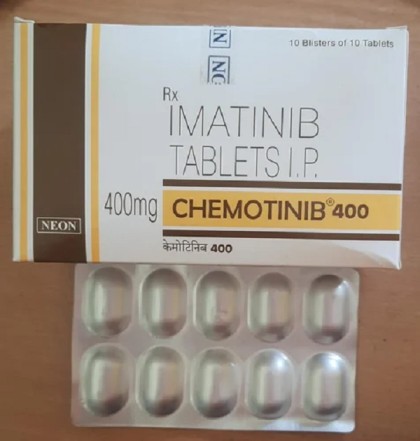Product Introduction:
Abritiga contains Abiraterone Acetate, a selective and irreversible inhibitor of the enzyme CYP17. This enzyme is critical for androgen production, and by blocking it, Abritiga lowers testosterone levels, helping to control the progression of prostate cancer, especially in advanced stages.
Uses:
Abritiga is primarily used for:
-
Metastatic castration-resistant prostate cancer (mCRPC)
-
Metastatic high-risk castration-sensitive prostate cancer (mCSPC)
-
Post-chemotherapy prostate cancer management
-
Hormone-refractory prostate cancer
-
Combination therapy with corticosteroids
-
Part of long-term prostate cancer maintenance therapy
Storage Instructions:
-
Store below 30°C in a dry place
-
Protect from light and moisture
-
Keep the bottle tightly closed and out of reach of children
How It Works (Mechanism of Action):
Abiraterone Acetate inhibits CYP17A1, a key enzyme involved in androgen biosynthesis in the testes, adrenal glands, and prostate tumor tissue. By blocking this pathway, Abritiga reduces testosterone production, which helps slow or stop the growth of prostate cancer cells.
Side Effects:
Common side effects:
-
Joint swelling or pain
-
Fatigue
-
High blood pressure
-
Low potassium levels (hypokalemia)
-
Fluid retention (edema)
-
Hot flashes
Serious side effects:
-
Liver toxicity
-
Heart problems (e.g., arrhythmia, chest pain)
-
Adrenal insufficiency
-
Severe electrolyte disturbances
-
Hypertension-related complications
Dosage (Typical Recommended Dose):
-
250mg strength: Four tablets once daily (1000 mg total)
-
500mg strength: Two tablets once daily (1000 mg total)
-
Always taken in combination with prednisone 5 mg twice daily or as directed by a physician
Method of Administration:
-
Take on an empty stomach, at least 1 hour before or 2 hours after food
-
Swallow tablets whole with water – do not crush or chew
-
Take at the same time every day
Precautions:
-
Do not use in women, especially pregnant or breastfeeding women
-
Monitor liver function, blood pressure, and serum potassium levels regularly
-
Use with caution in patients with heart disease, liver impairment, or adrenal issues
-
Abritiga may reduce bone density with long-term use – monitor accordingly
-
Ensure effective contraception is used by male patients with partners of childbearing potential
Drug Interactions:
-
May interact with CYP3A4 inducers/inhibitors (e.g., rifampin, ketoconazole)
-
Increased effects of prednisone when combined
-
Caution with drugs that prolong QT interval or cause hypokalemia
-
Can alter the plasma concentration of warfarin, digoxin, and phenytoin
Allergies:
-
Contraindicated in individuals with hypersensitivity to Abiraterone Acetate or excipients
-
Watch for signs like skin rash, itching, swelling, or breathing difficulties
Overdose Information:
-
Overdose may result in hypertension, hypokalemia, liver damage, or cardiac arrhythmias
-
There is no specific antidote – supportive care and symptomatic treatment are advised
-
Seek immediate medical attention
Missed Dose Instructions:
-
If you miss a dose, take it as soon as you remember on the same day
-
If you forget for a whole day, skip the missed dose and resume normal schedule the next day
-
Do not double the dose to make up for a missed one
Additional Notes:
-
Routine monitoring of liver enzymes (ALT, AST), blood pressure, and electrolytes is essential
-
Patients should report signs of dizziness, chest pain, jaundice, or unusual weight gain promptly
-
Not recommended in children or adolescents


